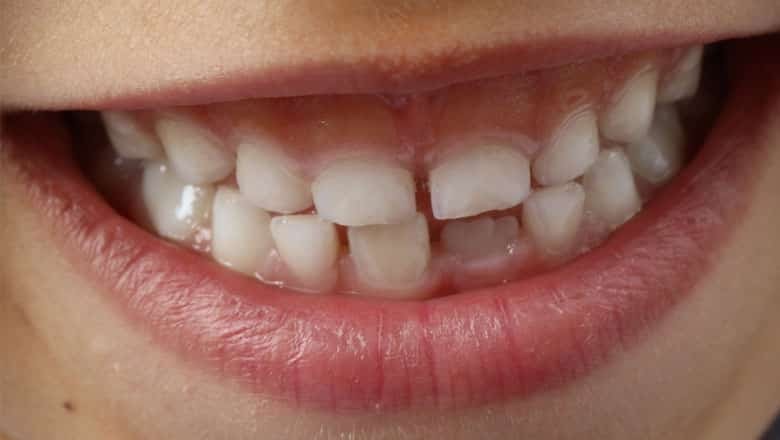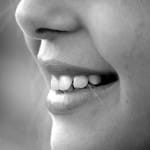Caries in children – what to do?


Tips for avoiding dental caries: How to ensure healthy teeth in your children
Almost everyone has tooth decay. Even children are not spared from the holes in their teeth. Caries in children is not uncommon. On the contrary.
Dental caries is considered the most common disease in preschoolers, said Wolfgang Eßer, chairman of the board of the National Association of Statutory Health Insurance Dentists in an interview with the Süddeutsche Zeitung.
The affected parents often feel helpless. They are only too happy to spare their child the trip to the dentist, which was particularly traumatic at this age.
But how can caries be identified early in children or even better avoided? We will give you the best tips for avoiding dental caries – not only for children.
Caries in children is common
According to Dr. Christian Splieth, the president of the German Society for Pediatrics, has 10 to 15 percent of all toddlers up to 5 years of age from caries. Children of very young parents from socially disadvantaged families are particularly often affected. Here up to 40 percent of the children have holes in their teeth. These numbers are serious. Because tooth decay can have very unpleasant consequences.
How does caries develop in children?
Caries occurs when certain bacteria in the mouth break down food into lactic acid and this acid attacks the teeth and literally eats them. The caries-causing bacteria are often transmitted from the mother in the child’s first months, e.g. B. when the mother puts the pacifier or the bottle of the child in her mouth.
If the child gets sweetened juices or teas from the bottle, the foundation for early childhood tooth decay is laid. Milk tooth caries is therefore also called sucking or carotid bottle caries or in English Nursing Bottle Syndrome.
How do I recognize tooth decay in my children?
The first signs of tooth decay are often overlooked. They can be easily recognized if you know what to look for. Teeth affected by caries initially turn whitish, their surface becomes rougher and the tooth structure can become crumbly. Only later do the teeth turn darker until the brownish-black discoloration that is typical of caries occurs.
The consequences of caries in children
The consequences can be devastating. The affected teeth can cause severe pain and inflammation and then often have to be pulled. Apart from this intervention, which is usually seen as traumatic for the child, the jawbone can close so tightly that it is very difficult to break through the new teeth.
Missing teeth can also cause chewing and swallowing problems in children. Speech development can also be hampered by missing teeth. Teasing can put additional strain on the affected children. Dental prostheses are therefore not uncommon even in early childhood.
Dental treatments for toddlers are particularly traumatic
Nobody likes going to the dentist. However, unlike adults, children under the age of three cannot understand why dental treatment is necessary. The pain experienced is usually traumatic.
Dental interventions in children are therefore often only performed under anesthesia. This is not only costly and personnel-intensive, but also always entails certain risks for the little patient.
Fortunately, caries can be prevented in children.
How to avoid tooth decay in children – The best tips against holes in the teeth in children
Tip 1: Avoid sucking off pacifiers, bottles and spoons
Caries only develops when certain bacteria settle in the mouth and spread widely. As a rule, the bacteria are transmitted from the parents to the children. The best protection against caries in children is to avoid this transmission.
Therefore, as a parent, do not put your child’s pacifier, bottles or cutlery in your mouth. If the pacifier falls on the floor, it is better to remove the dirt with a little water. For the sake of your child’s dental health, it is better to avoid too intimate kisses, where the exchange of saliva is possible.
As soon as children can eat themselves, they should be given their own cutlery and should not be encouraged to try a bite from someone else’s fork.
Tip 2: Do not give your child sweetened drinks
Experts are particularly critical of the use of sweetened drinks in baby bottles. Here, caries, especially the incisors, spread particularly quickly because the sweetened liquid remains in the mouth for a long time and the caries-causing bacteria thus serve as optimal nutrition.
Sweetened teas, cocoa drinks, fruit juices (even diluted) do not belong in the child’s bottle. Only give your child water and not sweetened fruit and herbal teas to drink!
Tip 3: solid food instead of porridge
After breastfeeding, most parents only feed porridge to their children in the first months of life. This may sound child-friendly, but it is not conducive to healthy tooth development.
Once the molars break through, children should be accustomed to chewing solid foods. This stimulates the flow of saliva, which cleans the teeth and contains important substances to strengthen the teeth and protect them from caries.
Tip 4: Avoid sugar for as long as possible
The first three years are crucial for dental health. If hardly any bacteria causing caries have colonized during this time, the risk of developing caries also decreases in later life.
Bacteria that cause tooth decay love sugar. This means that the less sugar your child consumes in the first years of life, the more difficult it is for the bacteria to reproduce. A sugar free diet would be ideal.
As long as your child is not in kindergarten and you alone have what you eat, do not give your child sweets or other things that contain refined sugar. The sweetness of fruit is absolutely sufficient.
Since children always want to eat exactly what others eat, set a good example and avoid snacking in front of your child in the first few years.
If you pay attention to a sugar-free diet in your child, this has several advantages. This not only reduces the risk of tooth decay, but also ensures that your child does not develop a strong taste for sweets later on, because what we like and what we don’t like is primarily a question of habit.
And because sugar not only breaks your teeth, but is also one of the causes of many other diseases and makes you fat, you are laying the foundation for optimal health for your child.
In general, you should look for one base-forming nutrition to keep the acid-base balance in balance. Because one Acidification of the body makes the teeth vulnerable to tooth decay from the inside.
Tip 5: Make dental care a very special experience
Care for teeth. Because tooth decay can only spread if the environment in the mouth is acidic. This means that if the teeth are regularly removed from the dental plaque and the oral environment is kept basic, caries bacteria have no chance.
Please do not use conventional toothpaste, which usually contains other questionable substances as well as the fluorine that has come under criticism, as I said in my guide "Caries? No thanks! How to effectively prevent and stop tooth decay and other dental diseases" hints.
Natural materials such as chalk are better, Sango coral or rock salt, that provide a basic environment and provide valuable minerals for the remineralization of the teeth.
As soon as your child’s first teeth are broken, they should also be well cared for. It’s not always easy with children. Because brushing your teeth is no fun. But that need not be.
Make brushing your teeth a very special experience by making a game, a special ritual. Let your child rub their teeth with their fingers, ideally with a basic powder such as Sango Coral or caries-inhibiting substances such as xylitol.
Tell him stories about the life of the teeth or sing along. It is also important to explain to the child in an age-appropriate manner how important the correct care of his teeth is.

As soon as your child is able to gargle, you can also have fun singing songs with a mouthful of brine in your mouth while also caring for your teeth.
Those interested can find a lot more information and tips on the topic of dental health and tooth decay in my guide "Caries? No thanks! How to effectively prevent and stop tooth decay and other dental diseases".
Related Posts
-

Caries: symptoms, symptoms, causes, treatment »
Caries: Symptoms, complaints, causes, treatment Caries: Symptoms, complaints, causes, treatment If a tooth is affected by caries, a process is underway…
-

Caries in young children introduction An infant is the life and learning phase of humans up to the age of six. During this time, the little ones discover…
-

Caries – causes, symptoms & treatment
Caries Caries respectively. tooth decay with the typical causes of toothache and dark discoloration of the teeth, is one of the most common infectious…
-

Faq – teeth and caries, birth on your own
Birth on your own A clean tooth is a healthy tooth? Clean teeth do not get tooth decay. That is probably the most classic dogma of conventional…
